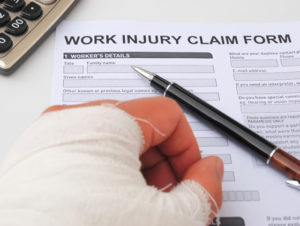Are You Entitled to Advances in Your Florida Workers’ Compensation Case?
The Florida Workers’ Compensation law provides that an advance payment of compensation not in excess of $2000 may be approved informally without a hearing by a Judge of compensation claims. This provision of the Florida Worker’s Compensation law is covered under Florida statute 440.20 (12) (c ).
Advances of $2000?
When you are injured at work and you are unable to return to your employment while recovering from your injuries, you may be entitled to an advance payment of compensation. In general, advances of $2000 may be requested from the employer/carrier. After giving all interested parties an opportunity to be heard, the judge assigned in your case should set a hearing on your request for an advance. If the employer/carrier agrees to the advance then an informal letter can be signed agreeing to the advance of $2000.
What Do I Need to Prove to Obtain an Advance of $2000.00?
In order to obtain an advance not in excess of $2000, after notice is given to all interested parties, you must establish one of three primary requirements: 1) your failure to return to employment had no substantial weight reduction; 2) a substantial loss of earning capacity; or 3) an actual or apparent physical impairment. You are not required to show proof that you will actually receive any benefits in future from which the employer/carrier can recover the $2000 advanced payment. These requirements have been well-established in the case known as Lopez v. Allied Aerofoam/Specialty Risk Services, 48 So. 3d 888 (Fla.1st DCA 1999).
Are You Entitled to an Advance in Excess of $2000?
You may be entitled to an advance in excess of $2000. In addition to establishing one of the three requirements for an advance up to $2000, a judge of compensation claims must also find that an advance in excess of $2000 is 1) in your best interest, 2) the advance will not materially prejudice the rights of the employer/carrier and 3) the additional advance is reasonable under the circumstances of your particular case. If these additional elements are established then you may be entitled to an advance in excess of $2000.
How Do I Pay Back the Advance?
There are usually two ways that advances are paid back. The first way is that the employer/carrier will deduct 20% of all future indemnity benefits paid to you until the advance is recouped. If, however, you are not receiving indemnity benefits then, perhaps, the advance would be paid back at the time you settle your case (if you choose to do so). There is however no statutory procedure for paying back an advance.
Should You Hire a Workers’ Compensation Attorney?
If you or anyone you know has been injured in any kind of accident, whether working or not, you may be entitled to medical and compensation by the filing of a workers’ compensation claim or petition for benefits. You should seek the advice of a Miami or South Miami workers’ compensation attorney so your rights can be explained to you. Attorney Jeff E. Rubin at the law firm of Talianoff Rubin & Rubin, P.A. has been handling Florida Workers’ Compensation cases since 1989. Jeff will provide a free consultation so that you can have a clear understanding of your rights if you had an accident and you were hurt or injured while working. Call 305-270-3211 or email jeff@mialaw.com to schedule a free consultation.
Call 305-270-3211 or email jeff@mialaw.com to schedule a free consultation.
Se Habla Espanol

 What is Major Contributing Cause in Your Florida Workers’ Compensation Case?
What is Major Contributing Cause in Your Florida Workers’ Compensation Case?